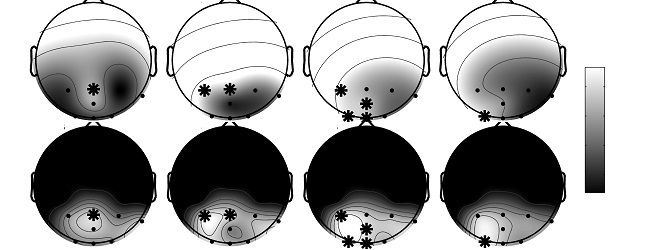Diploma Applied Neuropsychology

Overview
The taught content of the diploma is identical to the taught content we deliver when providing professional training to Clinical Psychologists pursuing entrance to the Special Register of Clinical Neuropsychologists. The course therefore covers core content dictated by the British Psychological Society and delivers an authentic reflection of clinical practices and issues. You will learn about a range of neuropsychological disorders and pathologies as well as focusing on principles of assessment, formulation and rehabilitation.
Around 80% of our taught content is delivered by clinicians from the National Health Service and we teach a large range of clinical skills which will support those who wish to have a career working with patients or conducting patient research in Neuropsychology. In addition, the course provides teaching from allied medical professions in order to demonstrate the role that Neuropsychology plays within wider healthcare systems and multidisciplinary approaches to patient care. This practical insight is coupled with study of the techniques, tests and theory that inform clinical practice so that our students are able to question and evaluate evidence-based practice.
Entry requirements & fees
Please see our prospectus page for detailed information
English language requirements
If English is not your first language, you need to meet Profile level C
Further information about English language requirements and profile levels.
Online lectures
Lectures should be attended in person but they are all recorded for you to replay at any point.
Part-time study
This diploma can be taken full-time as a one year course or part-time over two years. Please note that there are two entry points for the programme each year: September and January.
Course structure, units and assessment
The diploma consists of six taught units (total of 120 credits). Please visit our programme catalogue for full details of the unit content.
Scholarships
There are a number of scholarships that are available for postgraduate study at Bristol, and these include UK, EU and international students. More information about scholarships can be found on the University of Bristol's funding web page, and there is also information specific to each country. The Student Funding Office has further information about funding postgraduate study.
For UK students undertaking postgraduate programmes, there is a scholarship award available from the Grundy Educational Trust. More information is available here: http://www.bristol.ac.uk/students/support/finances/scholarships/get/terms/
Workload
Full-time
The academic year is comprised of two 12-week teaching blocks and the summer period. In each teaching block, there is one week of intensive teaching (~20 hours in one week), otherwise there are typically three 2-hour lectures per week and a 90-minute clinical tutorial.
Online assessments occur twice a year in the January assessment period and the Summer assessment period. See the key dates of the University website for details.
Part-time
Each academic year is comprised of two 12-week teaching blocks and the summer period. In each teaching block, there is one week of intensive teaching (~20 hours in one week), otherwise there is typically one 2-hour lecture per week and a 90-minute clinical tutorial.
Online assessments occur twice a year in the January assessment period and the Summer assessment period. See the key dates of the University website for details.
Careers
This diploma delivers core skills and knowledge related to the theory and practice of Clinical Neuropsychology. As such, it will support those with aspirations for further clinical training, such as Clinical Psychology and Clinical Neuropsychology, or a career in clinical research. Our programmes also deliver training which will enhance your opportunities to gain employment within clinical environments – especially those with a focus on Clinical Neuropsychology and can also assist those wishing to obtain research assistant posts with a clinical focus.
For students who go on to complete doctoral practitioner psychology training (e.g. clinical psychology), the taught content of this degree can be recognised later as contributing to your professional qualification in neuropsychology and you would not need to repeat this training when seeking entry to the Specialist Register of Clinical Neuropsychologists.
This programme also provides continuing professional development to anyone who is already working in a clinical setting and is seeking specialist training to work with patients who have neuropsychological deficits.
